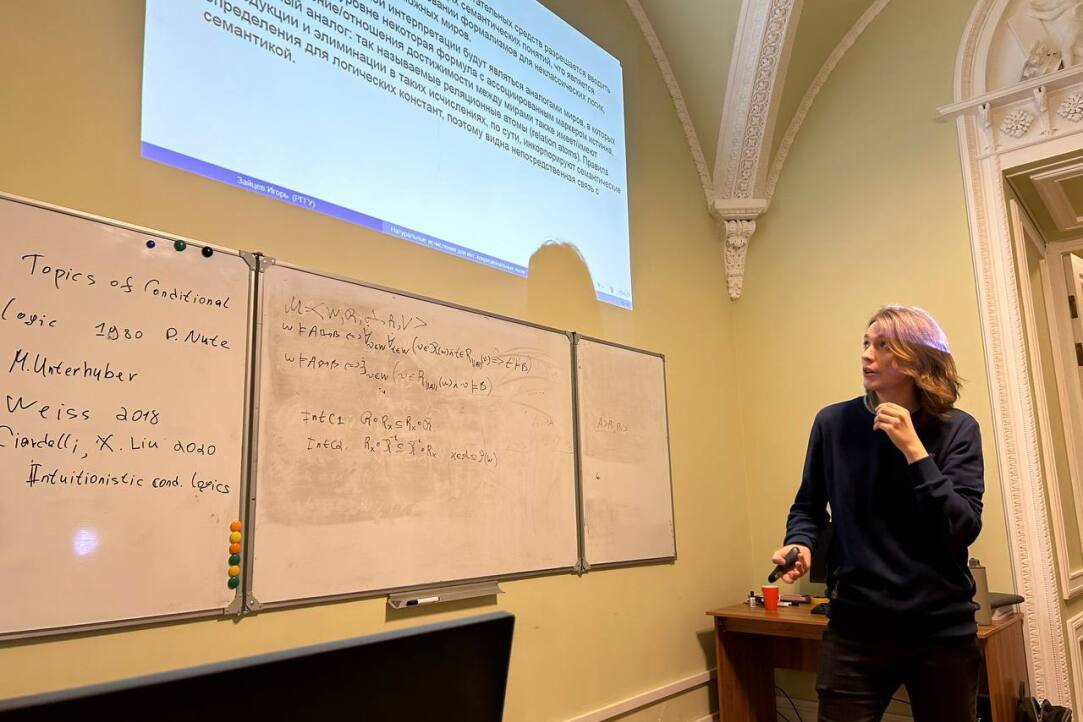Igor Zaitsev gave a talk on the topic of "Subordinated labelled natural calculus for conditional intuitionistic logics with two independent counterfactual connectives"
On April 5 and 12, two consequitive meetings of the research workshop "From the Logical Point of View" were held, at which Igor Zaitsev (RSUH) made a presentation on the topic of "Subordinated labelled natural calculus for conditional intuitionistic logics with two independent counterfactual connectives".

Abstract
Intuitionistic conditional logic is a branch of modern philosophical logic that solves the problems of formal analysis of conditional expressions of natural language in both indicative ("if A, then B") and counterfactual ("if there were A, then there would be B") forms. The indicative conditional connection in these logical theories is fixed by means of an intuitionistic implication, considered as a designation of an epistemological condition, and a counterfactual conditional connection – by means of two conditional operators, strong and weak, according to D. Lewis, expressing ontic assumptions of the existence of a certain state of affairs described in the antecedent of the counterfactual and not taking place in the actual world, in the so-called nearest possible worlds. G.K. Olkhovikov (2023) proposed the basic propositional intuitionistic conditional logic IntCK, which is a natural conditional analogue of the basic intuitionistic modal logic IK, independently proposed by K. Stirling, G. Plotkin and J. Fischer Servi.The talk is planned to outline the following points:1. To give a brief description of conditional intuitionistic logics.2. Describe their connection with intuitionistic modal logic.3. To define the birelational semantics of G.K. Olkhovikov's IntCK logic and its extensions, which I have defined, variants of D. Lewis's V family logics - IntV, IntVW, IntVC.4. To propose a (complete and correct) formalization by means of the calculus of subordinate natural inference in the style of Fitch-Yaskovsky with the adaptation of the technique of using markers (labels) and relational atoms (relation atoms). The proposed calculus can be easily adapted for conditional logic, the non-modal fragment of which coincides with classical propositional logic, and intuitionistic conditional logical theories in a language with a single conditional bundle, in particular, for the systems described by J. Weiss, I. Ciardelli and S. Liu.
Jointly with the RSUH workshop "Films of thought and possible worlds".
